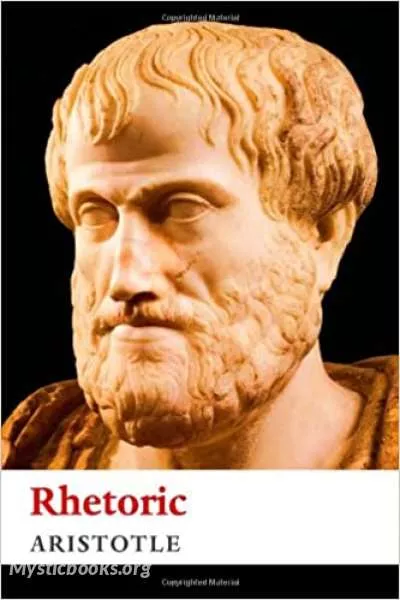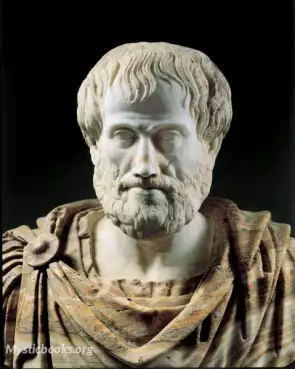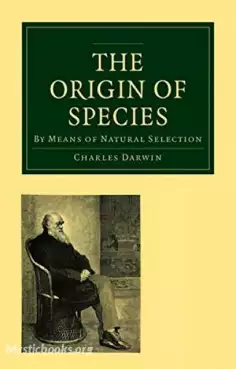
Rhetoric
by Aristotle
'Rhetoric' Summary
Aristotle is generally credited with developing the basics of the system of rhetoric that "thereafter served as its touchstone", influencing the development of rhetorical theory from ancient through modern times. The Rhetoric is regarded by most rhetoricians as "the most important single work on persuasion ever written." Gross and Walzer concur, indicating that, just as Alfred North Whitehead considered all Western philosophy a footnote to Plato, "all subsequent rhetorical theory is but a series of responses to issues raised" by Aristotle's Rhetoric. This is largely a reflection of disciplinary divisions, dating back to Peter Ramus' attacks on Aristotelian rhetoric in the late 16th century and continuing to the present.
Like the other works of Aristotle that have survived from antiquity, the Rhetoric seems not to have been intended for publication, being instead a collection of his students' notes in response to his lectures. The treatise shows the development of Aristotle's thought through two different periods while he was in Athens, and illustrates Aristotle's expansion of the study of rhetoric beyond Plato's early criticism of it in the Gorgias (c. 386 BC) as immoral, dangerous, and unworthy of serious study. Plato's final dialogue on rhetoric, the Phaedrus (c. 370 BC), offered a more moderate view of rhetoric, acknowledging its value in the hands of a true philosopher (the "midwife of the soul") for "winning the soul through discourse." This dialogue offered Aristotle, first a student and then a teacher at Plato's Academy, a more positive starting point for the development of rhetoric as an art worthy of systematic, scientific study.
The Rhetoric was developed by Aristotle during two periods when he was in Athens, the first, from 367–347 BCE (when he was seconded to Plato in the Academy); and the second, from 335–322 BCE (when he was running his own school, the Lyceum).
The study of rhetoric was contested in classical Greece: on the one side were the sophists, and on the other side were Socrates, Plato, and Aristotle. The trio saw rhetoric and poetry as tools that were too often used to manipulate others by appealing to emotion and omitting facts. They particularly accused the sophists, including Gorgias and Isocrates, of this manipulation. Plato, particularly, laid the blame for the arrest and the death of Socrates at the feet of sophistical rhetoric. In stark contrast to the emotional rhetoric and poetry of the sophists was a rhetoric grounded in philosophy and the pursuit of enlightenment.
One of the most important contributions of Aristotle's approach was that he identified rhetoric as one of the three key elements—along with logic and dialectic—of philosophy. Indeed, the first line of the Rhetoric is "Rhetoric is a counterpart (antistrophe) of dialectic". According to Aristotle, logic is concerned with reasoning to reach scientific certainty while dialectic and rhetoric are concerned with probability and, thus, are the branches of philosophy that are best suited to human affairs. Dialectic is a tool for philosophical debate; it is a means for skilled audiences to test probable knowledge in order to learn. Conversely, rhetoric is a tool for practical debate; it is a means for persuading a general audience using probable knowledge to resolve practical issues. Dialectic and rhetoric create a partnership for a system of persuasion based on knowledge instead of upon manipulation and omission.
Book Details
Language
EnglishOriginal Language
Ancient GreekPublished In
Authors

Aristotle
Greece
Aristotle (384–322 BC) was a Greek philosopher and polymath during the Classical period in Ancient Greece. Taught by Plato, he was the founder of the Lyceum, the Peripatetic school of philosophy...
Books by AristotleDownload eBooks
Listen/Download Audiobook
- Select Speed
Related books

Plan and Preface to a Dictionary of English by Samuel Johnson
The published dictionary was a huge book: with pages nearly 1½ feet tall and 20 inches wide, it contained 42,773 words; it also sold for the huge pric...

Birds and All Nature, Vol. V, No 4, April 1899 by Various
'Birds and All Nature' was a monthly magazine published from 1897 to 1907, exploring various facets of the natural world. Each issue presented short p...

King Alfred of England by Jacob Abbott
Jacob Abbott's "King Alfred of England" presents a biographical account of Alfred the Great, highlighting his significant role in defending England fr...

The Elements of Style by William Strunk
The Elements of Style is an American English writing style guide in numerous editions. The original was composed by William Strunk Jr. in 1918, and pu...

Birds and All Nature, Vol. IV, No 6, December 1898 by Various
Birds and All Nature is a monthly publication of the Nature Study Publishing Company of Chicago. It includes short poems and brief descriptions of bir...

Bird World: A Bird Book for Children by Jenny H. Stickney
It is an engaging and educational book that introduces young readers to the fascinating world of birds. Through its delightful pages, this book provid...

On the Origin of Species by Means of Natural Selection by Charles Darwin
Considered to be one of the books that changed the world and how we view ourselves, On The Origin of Species by Charles Darwin was met with incredulou...

Story of My Life, Part 2 (Letters 1887 - 1901) by Helen Keller
This book, 'Story of My Life, Part 2,' delves into the personal and intellectual development of Helen Keller through a collection of her letters writt...

Memoiren einer Sozialistin - Lehrjahre by Lily Braun
The book offers a glimpse into the life and times of Lily Braun, a prominent German socialist and feminist. Born into an aristocratic family, Braun de...

Birds and All Nature, Vol. V, No 5, May 1899 by Various
'Birds and All Nature' was a monthly magazine published in the late 19th and early 20th centuries, showcasing the beauty and wonder of the natural wor...
Reviews for Rhetoric
No reviews posted or approved, yet...